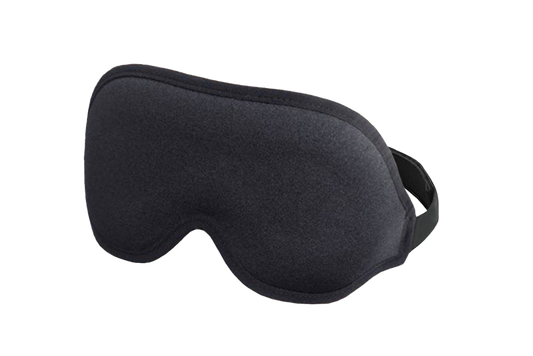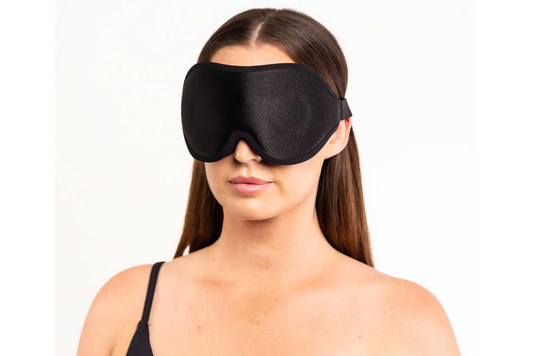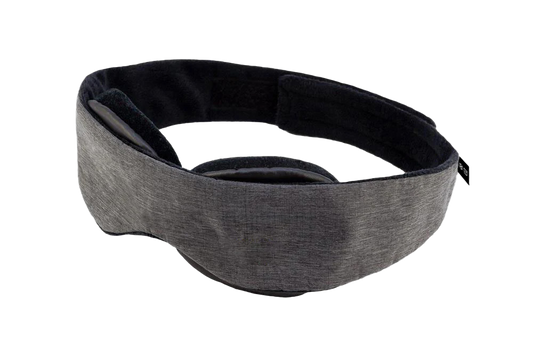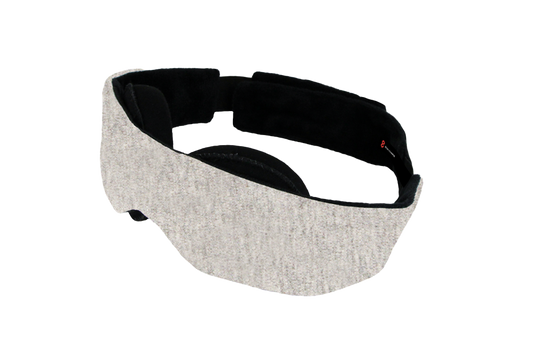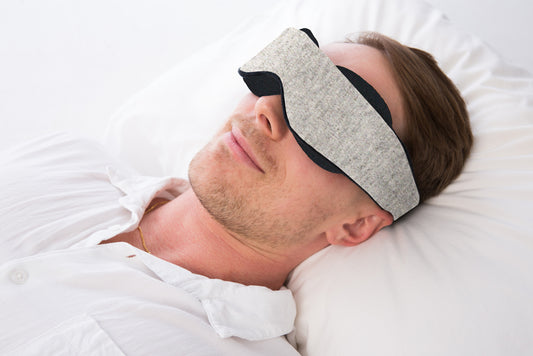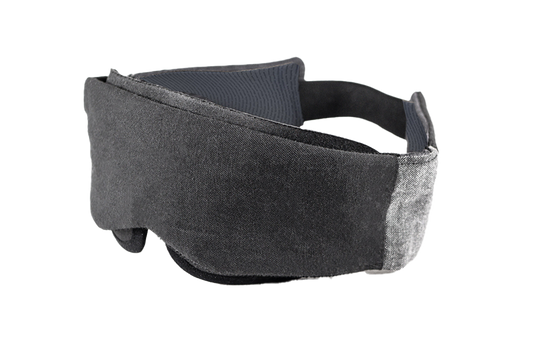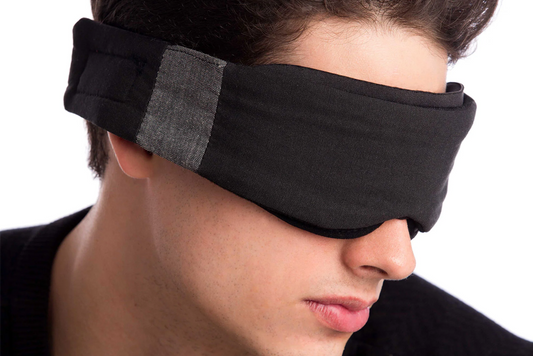Do Sleep Masks Work?
Andy Mant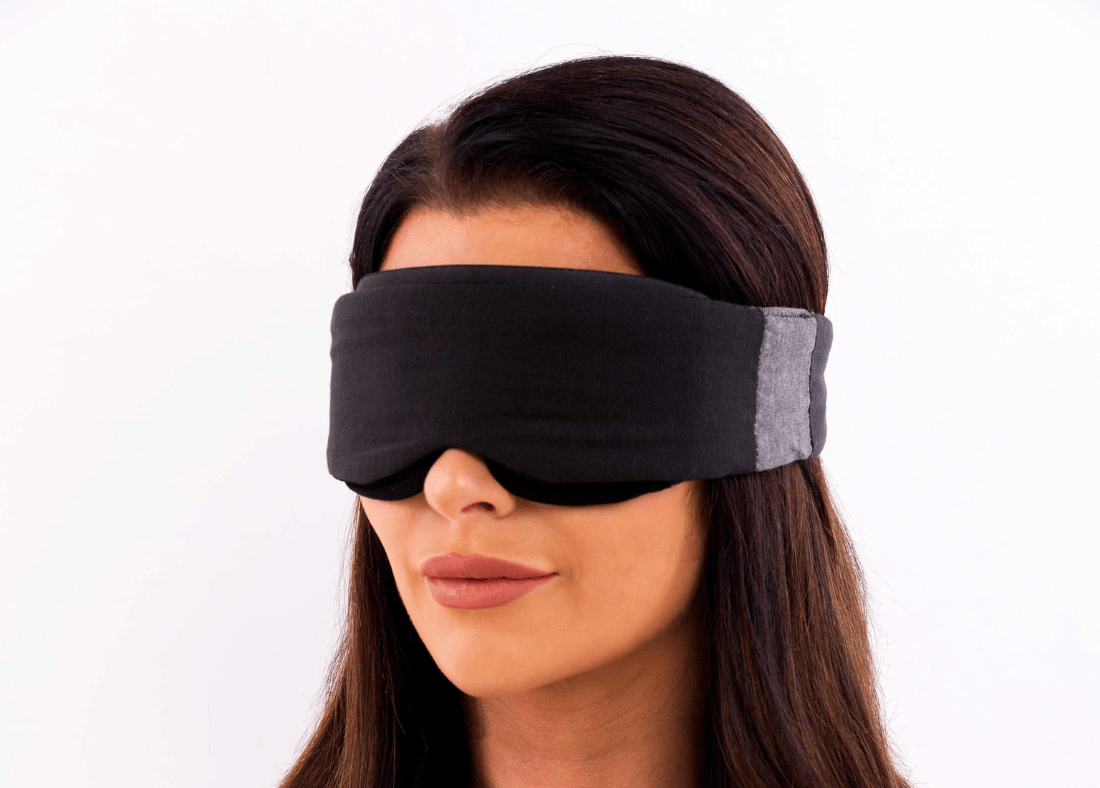
According to the Centres for Disease Control and Prevention, not getting enough sleep quality is linked to various conditions and provide tips to help. With at least a third of American adults reporting getting less sleep than the recommended amount, there is a big problem.
In many cases, it is a big problem that could be helped by something small and straightforward: a sleep mask.
Do sleep masks actually work, and do they help you fall asleep faster? And how and why do they work? Let’s take a look.
Why should you sleep in the dark?
Even though there are still unanswered questions about why and how humans sleep, medical professionals do have a fundamental understanding of the phenomenon. There are two mechanisms that play a significant role in determining whether a person feels the need for sleep.
The first is a substance known as adenosine, which builds up in your brain while you are awake and signals to your body that it is time to go to sleep when it reaches its highest level.
The second mechanism is referred to as the "body clock," which is also known as your circadian rhythm. Light, whether it is natural or artificial, is a significant factor that plays a role in assisting the body clock in determining whether it is time to be awake or to go to sleep.
In a nutshell, the way it works is as follows: If there is a lot of light pouring in, your circadian rhythm will believe that it is time to be awake, and it will suppress a wide variety of chemicals, one of which is melatonin. This is why a totally dark room—whether through the use of blackout curtains that totally block out light or by wearing weighted sleep masks with an adjustable strap and made from breathable materials —is ideal to help you feel comfortable and relaxed for sleep.
Your body will create more melatonin when it is dark outside, which will signal to your circadian rhythm that it is time for bed. While sleeping, you also have higher melatonin levels, which helps you enter the deep sleep, REM sleep stages and sleep wake cycles.
Sleep Mask Benefits
They can block out the light.
As we mentioned above, sleeping in a totally dark room is one of the best things you can do to help get a good night's sleep. The absence of blue and green light after sunset has been shown to help with melatonin production in the short term.
A sleep mask blocks out the light completely without the use of blackout curtains and can be taken anywhere, whether you are in the comfort of your own home, on that red-eye flight, or in a hotel.
They can minimize distractions
Not only does the technology in your home keep you awake due to the blue light it emits, but it can also be distracting. When you are having difficulty falling asleep, it can be tempting to check the time on your phone.
However, this can lead to procrastination, and you may discover that you end up scrolling through your social media page instead of going to bed.
In the same way that you brush your teeth before bed, you should make wearing a sleep mask a regular part of your routine. It will be more difficult for you to roll over and quickly check your phone after you have put on your sleep mask.
It will also be more difficult for you to wake up and begin doing something entirely else. If someone next to you in bed is using a device, you will find it easier to ignore the blue light while wearing a sleep mask.
In addition, using one daily may help condition a reaction in your brain that tells it to fall asleep whenever you put it on, which in turn may help you sleep better.
Could help with dry eyes
Wearing a sleep mask when you go to bed can help you avoid waking up with irritated and itchy eyes. If you operate a heater or an air purifier while you are sleeping, you run the risk of drying up the air in the room, which can result in you waking up with dry, itchy eyes.
Adding moisture into the air with the help of a humidifier helps restore equilibrium to your environment. But humidifiers can be quite expensive and require a lot of maintenance to make sure that the vapour is filtered and clean.
Even though a sleep mask cannot bring any moisture back into your home, it can help keep your eyes hydrated and protect them from dust and allergies by trapping the moisture that is already there around them.
It’s portable
It is one thing to drift off to sleep in your own bed with your own pillows and blackout curtains, but when you are visiting a different place, it is not always possible to carry these things with you. It is not simply the fact that you are longing for your opulent bedroom back at home that could be affecting your quality of sleep when you leave behind your favorite sleep aid.
A study that was published in Current Biology found that when you are in unfamiliar surroundings, your body enters a state called "night watch," which makes it more difficult to fall asleep. Because of this, a sleep mask is an ideal solution for tuning out strange environments and assisting one in falling asleep regardless of where one may be.
It could help you fall asleep faster
In the same way that wearing a sleep mask could help you get a better night's rest; it might also make it easier for you to get to sleep more quickly.
There is nothing more excruciating than being in bed and mentally ticking off the hours till you have to get up for the day. There are many different methods that you may experiment with in order to fall asleep quickly, and adding an eye mask to the mix may help you doze off even more quickly than before. BON CHARGE Sleep Masks are perfect if you sleep on your side, back or belly.
This content is for informational purposes only and does not constitute medical advice. Products mentioned are not intended to diagnose, treat, cure, or prevent any medical condition. Individual experiences may vary.

